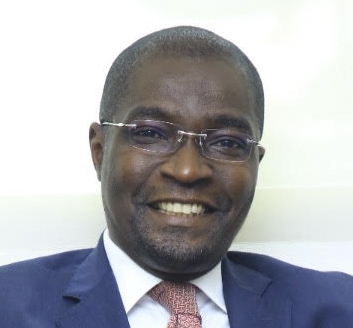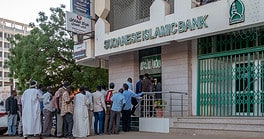Ehouman Kassi, CEO at Bridge Bank Group in Côte d’Ivoire, discusses strategies the bank has deployed to penetrate the market.

Global Finance: What strategy is Bridge Bank deploying to pursue growth?
Ehouman Kassi: The bank is reengineering its business model toward a new niche of clients and products, supported by undisputable customer service, a strengthened equity base and robust governance. We revamped products like those offered by the Treasury unit, enabling us to quadruple our forex market share, cash management and trade to respond to clients’ needs while boosting deposit and fee-based revenue. In three years, we have doubled our client base across all segments. Digital solutions have been a critical enabler in fast-tracking our growth. We are investing in a new core banking system that will take the bank to the next level in service and customer satisfaction.
GF: How is the Ivoirian economy impacting the banking industry?
Kassi: We are confident in the economy and expect 6% to 7% GDP growth this year. Ivoirian banks have shown resilience during the Covid-19 pandemic. We can navigate challenges like rising inflation and a deepening budget deficit with the same level of resilience, even though we anticipate the cost of credit to increase. We expect the banking industry to grow by at least twice the GDP growth.
GF: What is Bridge Bank doing to consolidate its dominance of the small and medium-size enterprise (SME) market?
Kassi: SMEs account for more than 80% of Ivoirian companies and employ the largest portion of the population, making SMEs a key economic driver. We started our journey as an SME-focused bank back in 2006, despite competition from big players in the market. We are today the 10th-largest bank in the country. We have built unique knowledge and expertise in handling and supporting/financing the needs of SMEs. We intend to outpace the market through various strategies, including increased lending and risk-sharing capacities through partial portfolio guarantee programs for SMEs. With a target of $100 million, we have already secured $25 million from the African Guarantee Fund. We hope to raise the remaining funds from other development financial institutions to create a $200 million financing capacity.
GF: What is Bridge Bank doing to grow other market segments?
Kassi: We believe an efficient distribution of assets among different segments is critical for profitability and effective use of capital. The retail business is the segment with the lowest cost of credit regarding historical defaults, while bringing more stability to the margin. Support for female-owned SMEs is also part of our partial portfolio and represents 20% of our SME portfolio. We aim to grow the same by 10% in the next 24 months. Although we are investing in digitalization, we still believe in physical branches as points of sale; therefore we shall continue to increase our presence in strategic locations.
GF: How is Bridge Bank deploying technology across operations?
Kassi: Technology is a key enabler; and the bank has embarked on a five-year transformation plan, which is being rolled out starting with a new world-class core banking system. The main objective is to streamline and automate all processes to reduce costs, offer service around the clock remotely and securely and increase operational efficiency. We have also established partnerships with fintechs targeting a greater number of new customers in the most cost-effective manner.
GF: Why is geographical expansion important for Bridge Bank?
Kassi: The bank has ventured into Senegal, and plans to open in Burkina and Mali. The limited size of our local market and the linkage of our various markets require us to expand our reach. These countries share borders and generate a lot of trade. By expanding, we will better respond to our clients’ needs and support their development. Our diversification thus helps in sustaining our growth.
GF: What is Bridge Bank doing to drive financial inclusion?
Kassi: We want to use technology to provide solutions even to nonbanked consumers or small businesses. Employing digital solutions and establishing partnerships with fintechs, telcos and microfinance institutions [MFIs] enables us to deliver bank services to customers who are not our core target.



